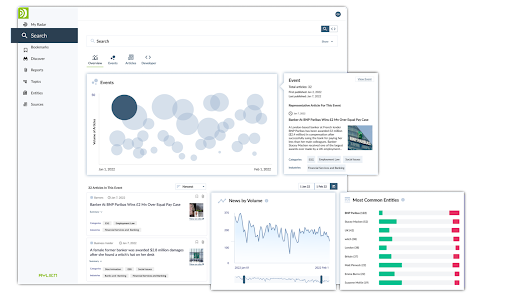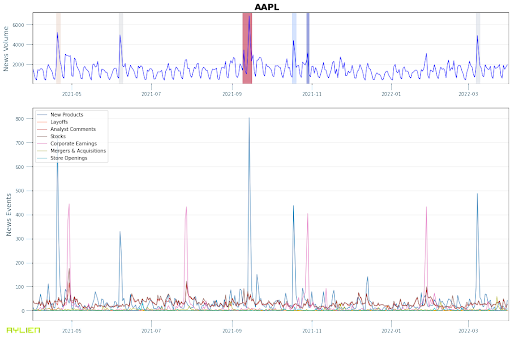In times of crisis and uncertainty, fact-based journalism makes a difference.
WorldNewsDay.org
Today marks World News Day, which aims to amplify the power and the impact of fact-based journalism on our world. It is a good reminder for us to reflect on the history of journalism, appreciate the value it brings into our societies, and most importantly ponder on the role of new technologies, such as artificial intelligence (AI), in the future of journalism.
Whether we like it or not, our world today is more connected yet more fragmented than ever before, and thanks to the internet and smartphones, any individual can now express their thoughts and views to their group of friends, or a group of complete strangers via social media platforms.
This freedom in speech and expression is a remarkable technological and societal achievement for humanity, taking a front seat in our collective efforts towards creating a fairer, more sustainable, and more transparent world. Indeed, since their proliferation in the late 2000’s/early 2010’s, social media and smartphones have been a big enabler for countless social and activist movements all around the globe. And the trend for the adoption of these technologies is upwards and upwards only.
Whilst the net impact of social media on our societies is undoubtedly positive, it is no secret that they’ve brought significant new challenges into our world as well. The ongoing pressure from shareholders and capital markets on social media companies to deliver growing profits, the fierce competition over users’ attention among various social platforms, and the ambiguity in the roles and responsibilities of social media companies vs their users in terms of the accuracy of the information published via these platforms, amplified by their enormous scale of users and content, have been some of the key reasons behind the plethora of issues arising from social media.
In particular, if the events of the past 6 years have taught us anything, it is that it’s now possible for anyone to come up with alternative interpretations of reality, and dress them up as facts, which has a huge potential for misuse if they manage to find enough people who believe in their alternative reality. Meanwhile, advancements in AI such as deepfakes and documents written by large language models such as GPT-3, have created entirely new attack vectors for those looking to manipulate communities and societies via social media.
It is against this backdrop that the role of responsible journalism in our today’s world stands out more than ever before. While the spirit and the core principles of journalism remain unchanged and largely still relevant today, the application of these principles requires a deeper understanding of the complexity of the current digital landscape and the possibilities that new technologies such as AI have to offer.
AI like any other technology can be seen as a tool in a toolbox with ever growing applicability, and as such, it can be employed effectively by journalists in accomplishing their mission of free, transparent, global journalism. Below we review some of the ways in which AI can contribute to fact-based journalism.
1. Automated fact checking
The scale of content posted on social media means that identifying new events and topics to cover for a journalist is akin to finding a needle in the haystack. Various academic and commercial organisations have been conducting research on automated fact checking using AI over the past 6 years. Guo et al.'s 2022 survey on automated fact checking is a comprehensive resource for understanding the current approaches to automated fact checking using techniques such as natural language processing and machine learning. This has led to the creation of a number of startups such as Factmata and Kinzen who are productising these technologies for use by journalists and social media platforms.

2. News intelligence
Companies like AYLIEN (disclosure: I’m CEO and founder at AYLIEN) apply advanced analytics to news articles aggregated from around the globe to extract and present rich insights about media trends, sentiment, and breaking events. This, combined with easy to access dashboards and graphics, make the task of discovering new events that are worth paying attention to significantly faster and more efficient for journalists and enterprises alike.
AI techniques such as natural language processing allow journalists and newsrooms to:
- Run highly specific searches over a very large pool of real-time news data, for instance based on a region, a topic or an entity (a company or a person)
- Translate content between languages, providing journalists with a global view of world events
- Summarise articles, allowing readers to review a large number of events in a short amount of time
- Understand the sentiment and stance of various publications and journalists towards a specific entity or topic
3. Trend analysis and prediction
The highly connected social graphs underlying social media platforms enable rapid propagation of viral events and information. Companies such as NewsWhip and AYLIEN leverage time series analysis to better understand what’s trending among news publications and social media platforms alike. Techniques such as anomaly detection are utilised to identify deviations from expected volume and sentiment. Finally, time series forecasting techniques can be used to predict which events or articles are likely to become viral.
Final words
Journalism’s role in informing citizens and facilitating free access to accurate information in our today’s societies is perhaps more critical than ever before. Yet, new paradigm-shifting technologies such as AI pose challenges as well as create opportunities for journalists in how they can accomplish their mission. It is therefore important for journalists to understand the AI capabilities available to them.
If you are a journalist and would like to learn more about AI and how it can help you in your job, you can take advantage of initiatives such as JournalismAI which offers fellowship programmes, in order to educate yourself.
Related Content
-
 General
General20 Aug, 2024
The advantage of monitoring long tail international sources for operational risk

Keith Doyle
4 Min Read
-
 General
General16 Feb, 2024
Why AI-powered news data is a crucial component for GRC platforms

Ross Hamer
4 Min Read
-
 General
General24 Oct, 2023
Introducing Quantexa News Intelligence

Ross Hamer
5 Min Read
Stay Informed
From time to time, we would like to contact you about our products and services via email.



